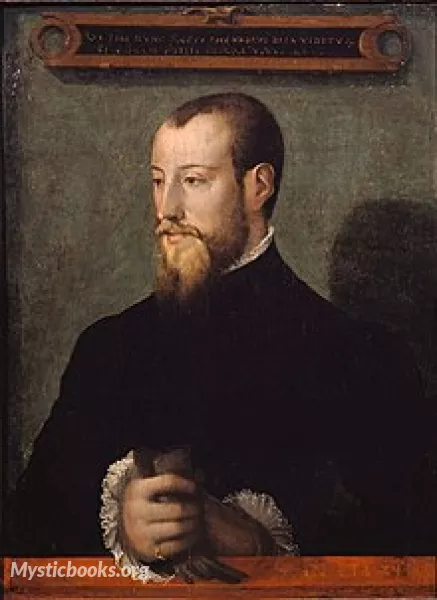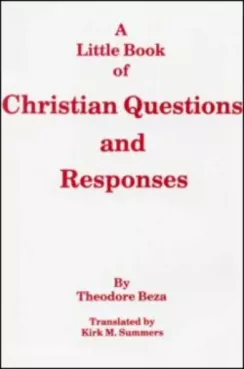
Timeline
Title
Country/Nationality
Theodore Beza
Theodore Beza was a notable figure during the Protestant Reformation, playing a crucial role in shaping the religious landscape of his time. This comprehensive essay explores the life, principles, notable works, philosophy, legacy, and intriguing aspects of Theodore Beza, focusing on his contributions as a theologian and his enduring impact on the Protestant movement.
Who was Theodore Beza?
Theodore Beza, born on June 24, 1519, in Vézelay, France, was a prominent theologian, scholar, and reformer. He was a key associate of John Calvin and succeeded him as the leader of the Protestant movement in Geneva. Beza's theological writings, influential sermons, and tireless advocacy for religious reform cemented his place as a central figure in the Reformed tradition.
Principles and Notable Works:
Beza was known for his unwavering commitment to Reformed theology and the defense of Protestant principles. His principles were grounded in the authority of Scripture, the sovereignty of God, and the doctrine of salvation by grace through faith. Beza's notable works include his Latin translation of the New Testament, "Novum Testamentum," and his theological treatises such as "The Christian Faith" and "Confession de Foi du Chrétien."
Fame and Contributions:
Theodore Beza gained fame for his intellectual prowess, theological insights, and his pivotal role in consolidating and spreading Calvinist ideas. He was instrumental in establishing the Reformed faith in Geneva and played a significant part in the development of Reformed churches throughout Europe. Beza's contributions extended beyond theology, as he also served as a diplomat and counselor, advocating for religious freedom and reform across nations.
Philosophy:
Beza's philosophy was deeply rooted in the principles of the Reformation. He emphasized the importance of Scripture as the ultimate authority for faith and practice and believed in the sovereignty of God's grace in salvation. Beza's theological writings explored topics such as predestination, the nature of God's providence, and the role of the church in society. His philosophy emphasized the need for a personal relationship with God and the pursuit of holiness in daily life.
Legacy and Remembrance:
Theodore Beza passed away on October 13, 1605, in Geneva. He is remembered as a significant figure in Reformation history and a key successor to John Calvin. Beza's legacy lies in his theological writings, which continue to be studied and respected by scholars and theologians. His contributions to the development of Reformed theology and his efforts to establish Protestantism as a viable alternative to Catholicism shaped the religious landscape of Europe and left a lasting impact on Protestant thought.
Interesting Facts:
Beyond his theological achievements, there are intriguing aspects of Theodore Beza's life. These facets shed light on his personal experiences, relationships with other reformers, and the challenges he faced during a tumultuous period of religious and political change.
Conclusion:
Theodore Beza's life and work stand as a testament to his unwavering commitment to the principles of the Reformation and his significant contributions to the Protestant movement. His theological writings, dedication to religious reform, and influential leadership have left an indelible mark on Christian theology and the development of Reformed thought. Though Theodore Beza has passed away, his legacy endures as his writings continue to inspire and shape the faith of countless individuals around the world.
Books by Theodore Beza

A Booke of Christian Questions and Answers
Dive into the depths of Christian faith and knowledge with "A Booke of Christian Questions and Answers" by Theodore Beza, a compelling compilation of thought-provoking inquiries and insightful responses that unravel the complexities of Christian doct...

Maister Bezae's Household Prayers
A collection of prayers and devotions designed to provide comfort, guidance, and inspiration to Christian believers. The prayers cover various aspects of daily life, including morning and evening devotions, prayers for specific occasions, and prayers...